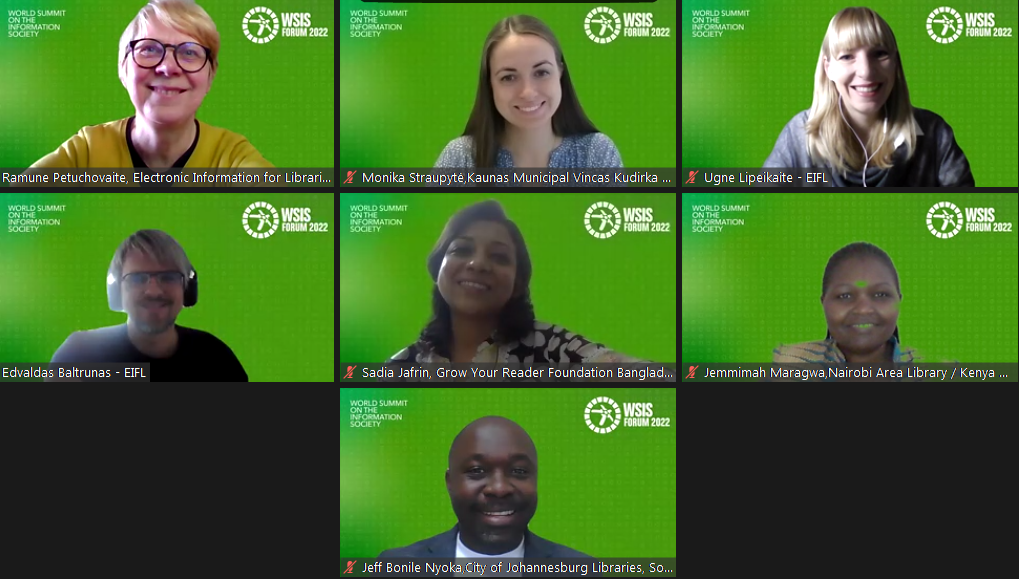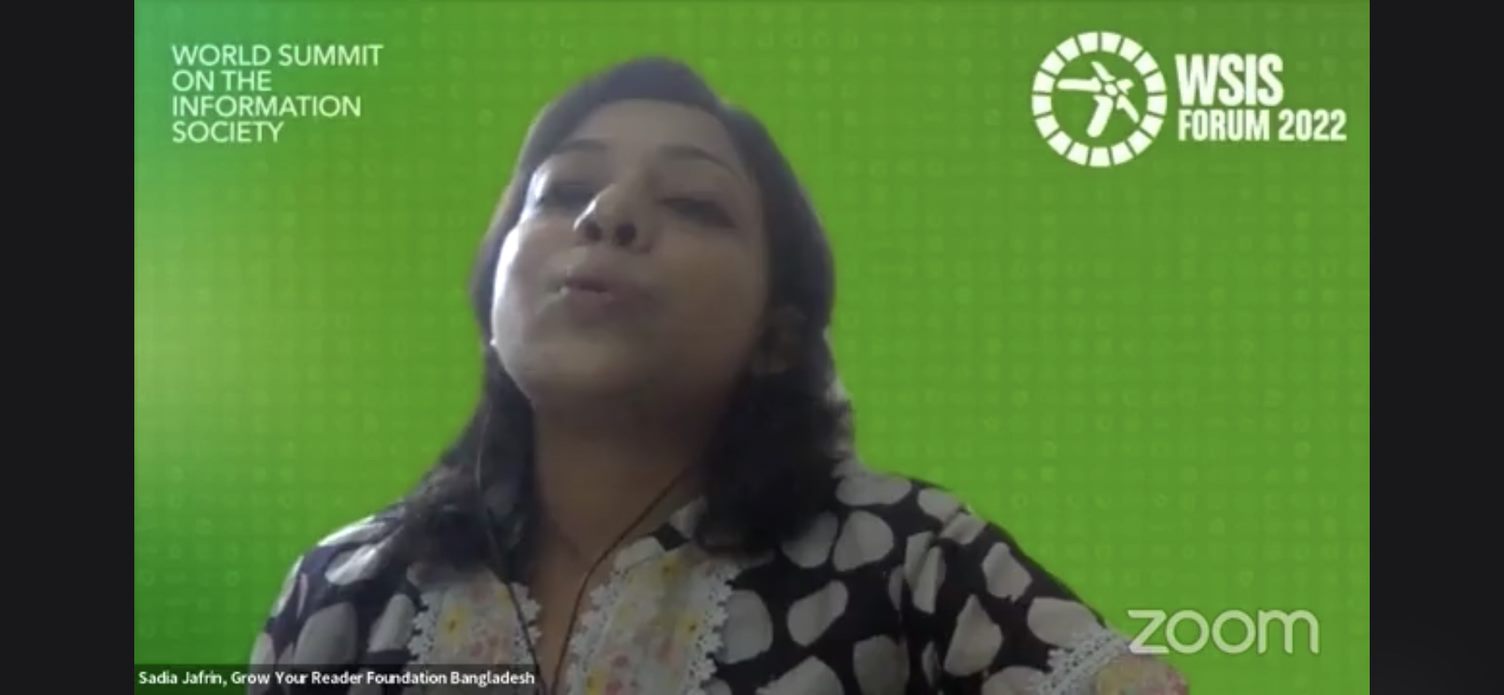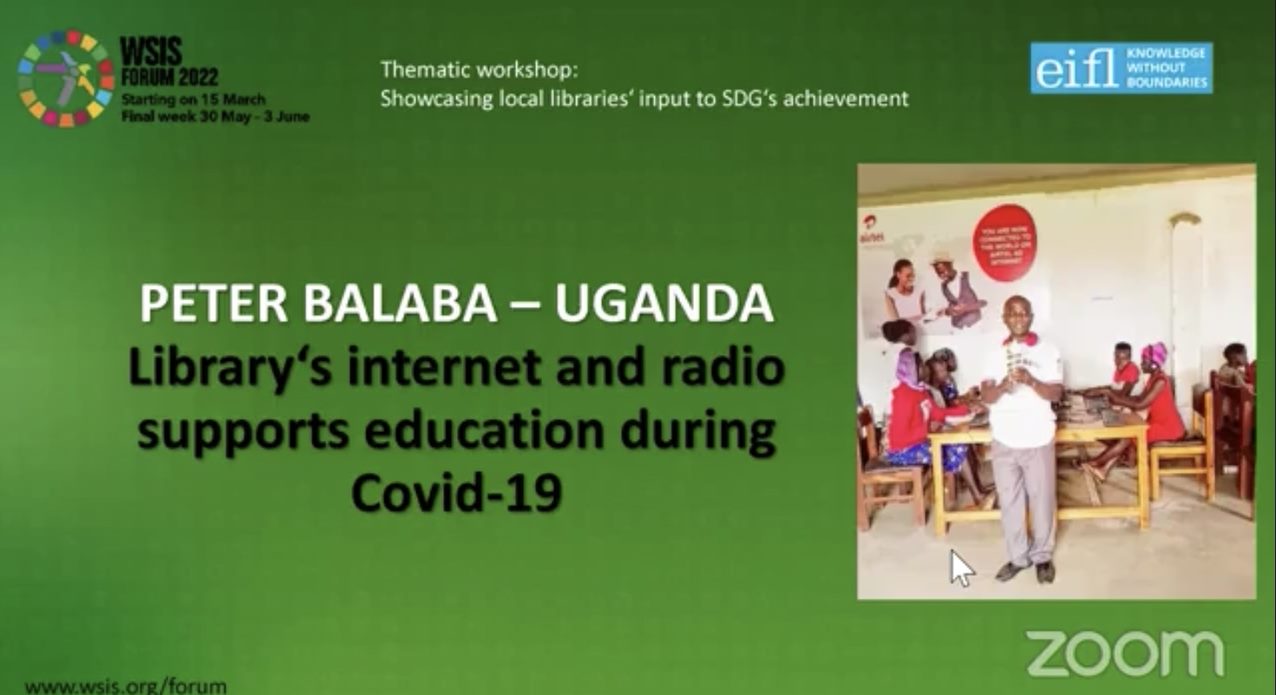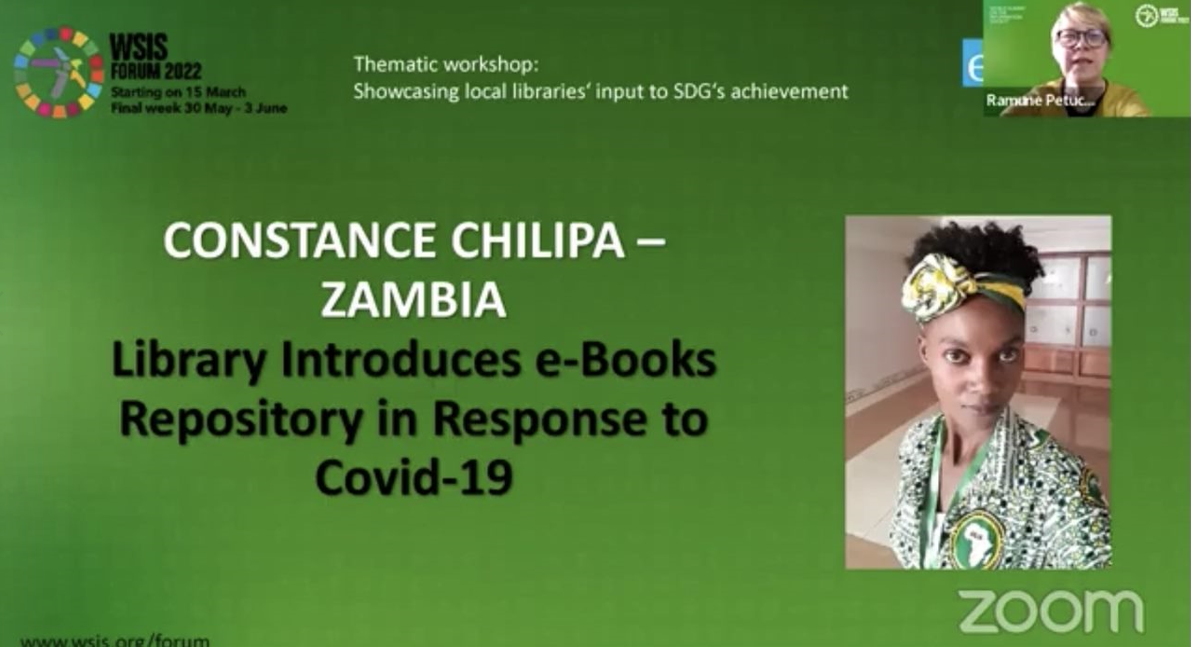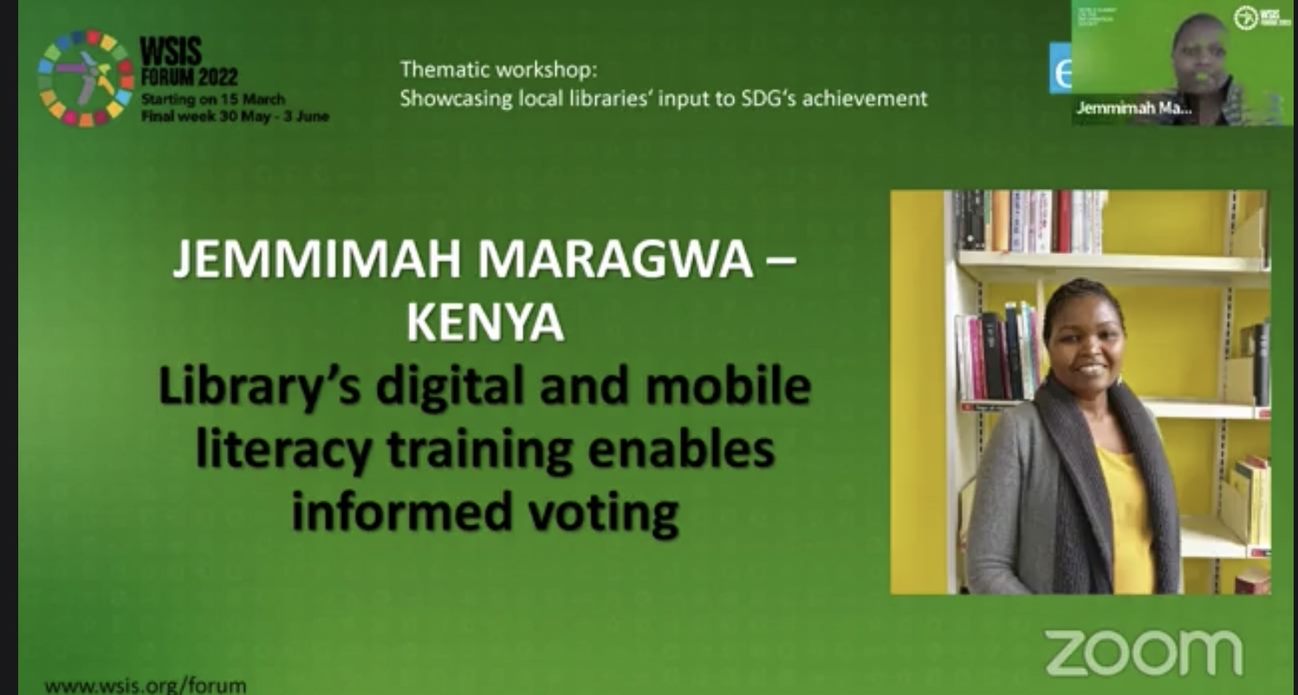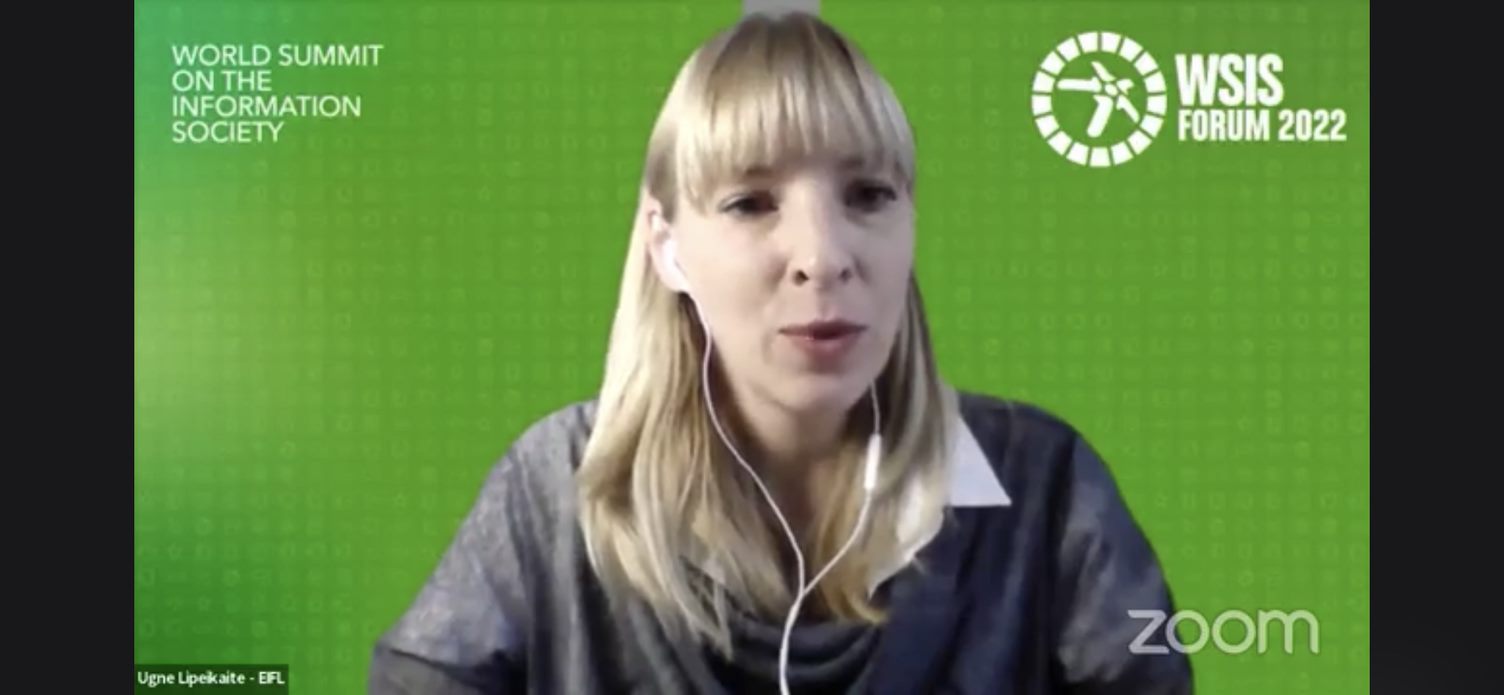Showcasing Local Libraries' Input to SDG's Achievement
Electronic Information for Libraries
Session 297
Electronic Information for Libraries (EIFL) has invited six inspiring libraries that won EIFL Public Library Innovation Awards, and librarians who took part in the Initiative for Young African Library Innovators to showcase creative uses of technology in libraries and to facilitate discussion around the impact of libraries in relation to the Sustainable Development Goals.
The panelists will showcase examples of how public and community libraries in Bangladesh, Uganda, Zambia, Kenya, Lithuania and South Africa are inspiring learning and building capacity to use technology that supports innovation and improves lives.
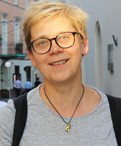
Since 2012, Ramune has worked with over 30 public library projects focused on crucial community development needs, such as farming, health, employment, education and social inclusion, in more than 20 developing and transition economy countries. She managed and contributed to the development of a framework for capacity building of public librarians in Africa, and an international leadership programme for young African librarians.
Before joining EIFL, Ramune was a Chief Specialist at the Division of Information Society Development of the Ministry of Culture of Republic of Lithuania. Also, for 17 years she has lectured at the Library and Information Science Programme at the Faculty of Communication, Vilnius University.
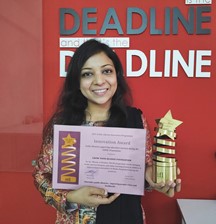
Sadia is the Founder of Grow Your Reader Foundation (GYRF), a non-profit organization that works to ensure quality education among children through creative curricula, teachers' training facilities, and community mobilization projects, including school, mobile, street, and online libraries. Wheels of Wisdom – WoW, the mobile library having books and internet facilities, is one of the three winners of the 15th EIFL Public Library Innovation Award.. Before that, she was a Teach For Bangladesh Fellow and completed the Global Girls Fellowship from ‘Teach For All’.
Sadia earned her post-graduate diploma in Education from Brac University (Bangladesh). She is an Acumen Bangladesh fellow from the 2022 cohort. She was also selected for the Top 100 Leaders in Education Award for her contribution to education during the pandemic.
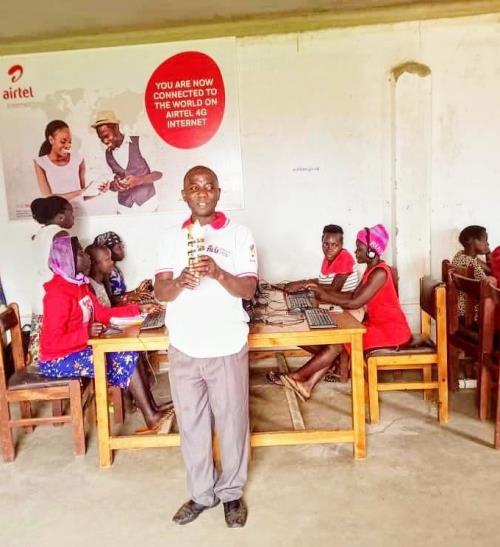
Peter has worked with the library since 2004. During this period he has helped the library to attract government funding and developed new programmes to address community needs. He has turned the library into a One Stop Center where the public can access information on Agriculture, Health, and Online government services. Peter is very passionate about his work and he has designed outreach programs for Schools and the Community through a Digital Literacy program. Concerned about the environment, Peter has helped Rural Women to construct low cost fuel cooking stoves. He is also a good storyteller and a Radio Script Writer. Under his leadership Nakaseke Public Library has won an Outstanding Performance Award from the National Library of Uganda. The library also won an EIFL Public Library Innovation Award for Education Recovery During Covid-19.
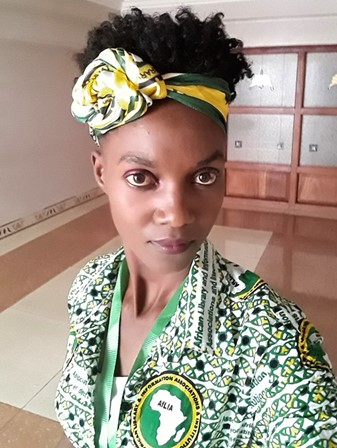
Constance is the librarian responsible for library operations in Zambia’s Northwestern Province. She is self-motivated and through her leadership and initiative her library has grown and developed. The library was awarded ‘2nd best Innovative Provincial Library in 2016’ and received a certificate of recognition for the outstanding performance during the 2021 National Library Week celebrations.
Constance holds a Bachelor of Arts in Library and Information Science and Public Administration from the University of Zambia. She is a former Publicity Secretary for the Library and Information Association of Zambia (2017-2019), and serves as Provincial Membership Secretary for the Union of Government and Allied Workers of Zambia.
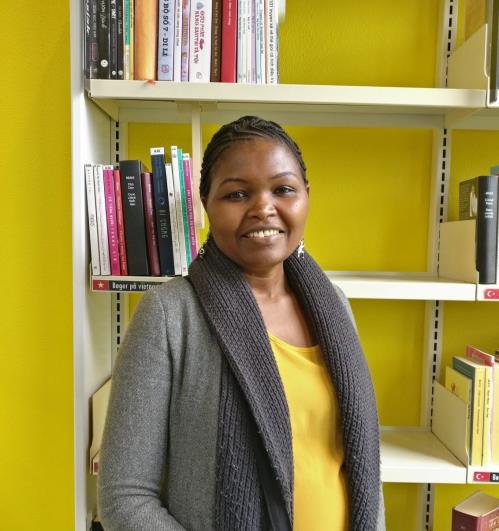
Jemmimah has been a librarian for eight years, and is currently serving in her fourth library branch. Her key responsibilities are to oversee the duties and procedures of her branch, and to build relationships with strategic partners and institutions to ensure effective and efficient access to information for community empowerment. She also engages in planning and designing experiential and impactful events that create awareness about the role of the library in the community. One of her favorite quotes is, “Wherever you go,there you are!”
Jemmimah holds a bachelor’s degree in library and information science.
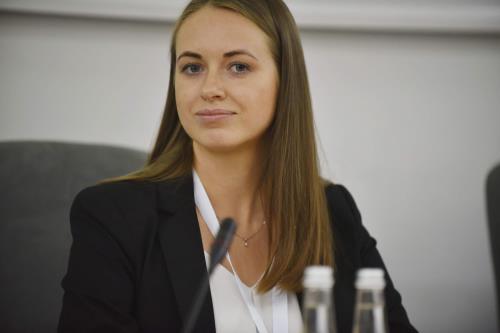
Monika is a lead of the Library's Culture Management Department. She is responsible for cultural and educational activities and cultural events, project implementation and communications. Monika also oversees Library’s social media accounts, website and media relations.
Monika implemented a lot of well known Library’s projects, such as Toy Library, Reading with dogs, Beach Library, Library of Emotions, etc.
Monika holds a Master's degree in Public Relations, and a Bachelor’s degree in Political Science from Vytautas Magnus University (Lithuania).
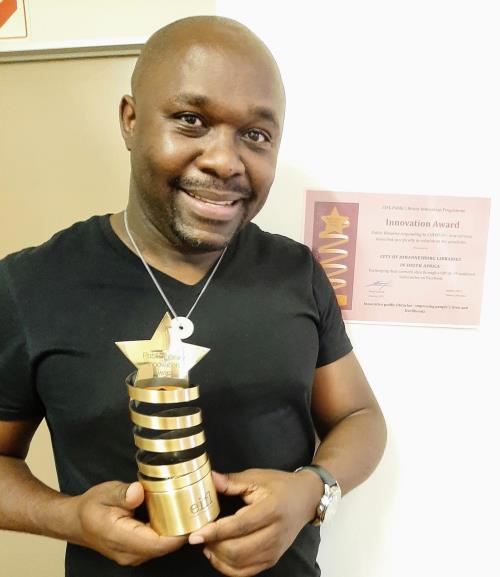
Jeff is responsible for development and implementation of eLearning services across the City of Johannesburg Libraries. Under his leadership in partnership with Google SA, Microsoft, Code 4 Life, Goethe Institut Joburg libraries introduced digital skills training for youth and seniors, mobile literacy and reading, coding, digital marketing and other programmes. Jeff loves training and working with people, and has shared his knowledge in a number of professional conferences and training events in South Africa and abroad, e.g. Denmark, Greece, Namibia.
Awards: Librarian of the Year for Gauteng South Libraries 2019; Awarded Employee of the Year for City of Joburg Library services 2016
Jeff holds Bachelor of Technology in Library and Information Studies from Durban University of Technology (South Africa). He is a member of Library and Information association of South Africa (LIASA), and South African Translators Association (SATI).
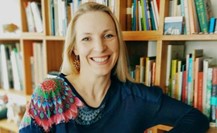
Ugne Lipeikaite oversees impact planning and evaluation for the EIFL Public Library Innovation Programme (EIFL-PLIP). Ugne has built the impact evaluation framework and tools that are now being used by EIFL-PLIP grantees. She has facilitated creation and implementation of EIFL’s training programmes for public librarians in five African countries, developing their capacity to introduce and implement innovative services that meet community needs, and improving their ICT and ICT training skills. She is also managing a “Digital skills and inclusion through libraries in Uganda” project, which aims to equip thousands of women and youth with digital skills through local libraries.
Ugne holds a Ph.D in Communication and Information from Vilnius University, Lithuania
-
 C2. Information and communication infrastructure
C2. Information and communication infrastructure
-
 C3. Access to information and knowledge
C3. Access to information and knowledge
-
 C4. Capacity building
C4. Capacity building
-
 C8. Cultural diversity and identity, linguistic diversity and local content
C8. Cultural diversity and identity, linguistic diversity and local content
Public access connectivity have offered local libraries new opportunities to increase access to knowledge, support democracy and multiculturalism, also helping people to build digital capacities, and improve standards of living and improve lives.
-
 Goal 1: End poverty in all its forms everywhere
Goal 1: End poverty in all its forms everywhere
-
 Goal 3: Ensure healthy lives and promote well-being for all
Goal 3: Ensure healthy lives and promote well-being for all
-
 Goal 4: Ensure inclusive and equitable quality education and promote lifelong learning opportunities for all
Goal 4: Ensure inclusive and equitable quality education and promote lifelong learning opportunities for all
-
 Goal 5: Achieve gender equality and empower all women and girls
Goal 5: Achieve gender equality and empower all women and girls
-
 Goal 8: Promote inclusive and sustainable economic growth, employment and decent work for all
Goal 8: Promote inclusive and sustainable economic growth, employment and decent work for all
-
 Goal 9: Build resilient infrastructure, promote sustainable industrialization and foster innovation
Goal 9: Build resilient infrastructure, promote sustainable industrialization and foster innovation
-
 Goal 11: Make cities inclusive, safe, resilient and sustainable
Goal 11: Make cities inclusive, safe, resilient and sustainable
-
 Goal 12: Ensure sustainable consumption and production patterns
Goal 12: Ensure sustainable consumption and production patterns
-
 Goal 13: Take urgent action to combat climate change and its impacts
Goal 13: Take urgent action to combat climate change and its impacts
-
 Goal 16: Promote just, peaceful and inclusive societies
Goal 16: Promote just, peaceful and inclusive societies
By providing access to internet, information, staff support and wide range of educational and cultural programmes, local libraries stand as unique partners in driving SDG's achievement forward.
